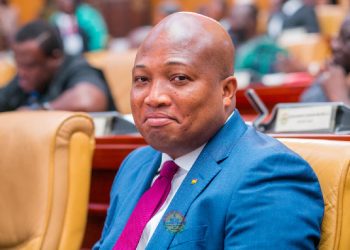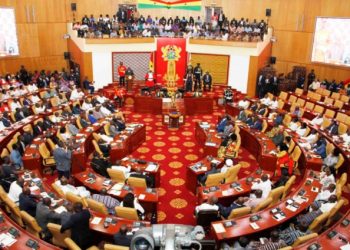The Nigerian government says it has demanded almost $10bn (£8bn) in compensation from the cryptocurrency firm, Binance.
It says Binance manipulated foreign exchange rates through currency speculation and rate-fixing, which have seen the naira lose nearly 70% of its value in recent months.
Two Binance executives were arrested in Nigeria earlier in the week.
Binance has not responded to the BBC’s requests for comment.
Nigeria is Africa’s biggest economy and also one of the world’s biggest cryptocurrency markets.
On Tuesday, Nigeria’s central bank governor Olayemi Cardoso said Binance Nigeria had moved $26bn worth of untraceable funds.
“These allegations are weighty,” Tilewa Adebajo CFG Advisory tells the BBC. “That’s a huge sum – even more than the annual Nigeria diaspora remittances of $24bn”.
“The government must have done their homework, hence the allegations.”
Cryptocurrency transactions equivalent to about 12% of Nigeria’s total income, or GDP, took place in the year to June 2023, according to Reuters news agency.
Cryptocurrencies are not illegal in Nigeria but firms must register in order to operate there, the government says. A special adviser to Nigeria’s president told the BBC that Binance had failed to do this.
After he came into office last year, President Bola Tinubu scrapped the policy of pegging the naira to the dollar, allowing traders to buy and sell the currency at rates determined by the market. But special advisor Bayo Onanuga said the recent collapse was not the result of normal activity.
“All of a sudden the exchange rate went through the roof… and it was being caused by the people on Binance platform,” he told the BBC Newsday programme.
“The government could not just fold its hands and allow this thing to continue.”
Binance is understood to be one of the most popular cryptocurrency platforms in the country.
To the frustration of Nigerian users, Binance and several other cryptocurrency firms have been suspended in the country in recent weeks including Coinbase, Kraken, Forextime, OctaFX, Crypto and FXTM in an attempt to halt the slide of the naira.
As well as the collapse of the naira, the government also says cryptocurrency is used for money laundering and funding terror.
The “anonymity and privacy inherent in the cryptocurrency system are what draw individuals, particularly those with illicit intentions, towards its use,” said a recent report by the Nigerian Financial Intelligence Unit.
Central bank governor Mr Cardoso said on Tuesday that “illicit flows” had been spotted on some cryptocurrency platforms in Nigeria. No specific firms were named as culprits.
In another measure intended to curb foreign-currency trading, Nigeria has closed thousands of bureaux de change.
Nigeria’s central bank has been under pressure to stabilise the national currency, the naira, which currently exchanges at 1,595 naira to US$1, compared to about 460 a year ago.
The collapse of the naira has worsened the cost-of-living crisis. High food and commodity prices – including fuel and transport – have led to protests in recent weeks.















